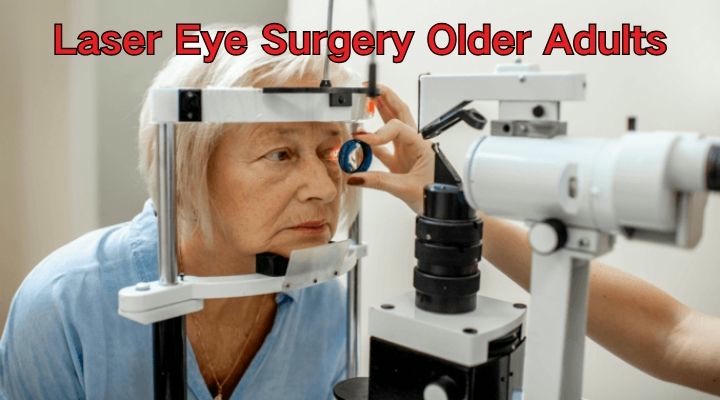Laser Eye Surgery UK Cost|Laser Eye Surgery Price
Laser Eye Surgery uses precise laser technology to reshape the cornea, correcting refractive errors such as myopia, hyperopia, and astigmatism. As a safe, effective, and fast-recovery solution, it is increasingly popular in the UK, aiming to reduce dependence on glasses or contact lenses. This guide explores its principles, mainstream technologies, Laser Eye Surgery Price, recovery process, and age-specific recommendations to help you make an informed decision.

1. Laser Surgery Principles and Mainstream Techniques
Laser Eye Surgery changes how light is refracted by reshaping the corneal curvature. The excimer laser is the most commonly used, accounting for approximately 89% of global treatments. The Royal College of Ophthalmologists recommends preoperative examinations including corneal thickness, refractive stability, and dry eye evaluation.
✅ Common Procedures Comparison:
| Procedure Type | Description & Suitable Candidates | 2025 Trends |
|---|---|---|
| LASIK | Corneal flap reshaping; suitable for most with nearsightedness/farsightedness | Fast recovery, widely used globally |
| PRK / LASEK | Outer corneal layer removed before reshaping; ideal for thin corneas | Earlier technique, slower but stable results |
| ReLEx SMILE | Minimally invasive, small-incision lenticule extraction | Increasingly favored by UK clinics, fewer side effects |
| Presbyond / RLE | For 40+ individuals with presbyopia, using lens replacement or blended vision | Preferred for older patients not suitable for lasers |
Advanced clinics such as London Vision Clinic use Carl Zeiss Meditec platforms, enhanced with AI-based corneal mapping, to improve precision and safety.
2. Outcomes, Safety, and Recovery
Laser Eye Surgery is low-risk. Common short-term effects like dry eyes and glare usually subside within weeks. Proper screening significantly reduces complication risks.
📊 Data Highlights:
- 82% of patients aged 26–45 maintained stable vision 5 years after LASIK
- Dry eye incidence: 20–30% for LASIK patients
- Recovery: SMILE/LASIK allow return to work in ~48 hours; PRK may require 7–10 days
🔍 Post-Surgery Effects:
| Type | Description & Common Experiences |
|---|---|
| Short-Term | Dryness, glare, mild sensitivity, vision fluctuation |
| Long-Term | Years of stable vision; many patients stop using glasses |
| Enhancement | A minority may need secondary adjustments |
3. Age-Based Recommendations (Reference Only)
Different age groups benefit from tailored Laser Eye Surgery approaches:
📌 Ages 20–39
Ideal candidates with stable vision and healthy corneas
Recommended procedures: LASIK, PRK, SMILE PRO
🧑🎨 Example: Sophie (28), a graphic designer, chose SMILE PRO and resumed work glasses-free the next day.
📌 Ages 40–59
Presbyopia becomes common
Recommended procedures: Presbyond, RLE
📺 Example: Mark (48) improved near and far vision with Presbyond.
📌 60+ Years
Lens-based treatments are more typical
Recommended procedures: Trifocal IOL, Refractive Cataract Surgery
👵 Example: Janet (71) eliminated the need for glasses through lens replacement.
4. Laser Eye Surgery Price and Long-Term Value
Though the Laser Eye Surgery Price is higher upfront, long-term savings vs traditional correction are notable.
💰 Cost Comparison Table:
| Item | Laser Eye Surgery (per eye) | Traditional Vision Correction (10 years) |
|---|---|---|
| LASIK | £1,000 – £2,200 | |
| PRK | £900 – £1,700 | |
| ReLEx SMILE | £1,800 – £2,500 | |
| Contact lenses + supplies | - | £3,600+ |
| Regular glasses | - | £1,500+ |
| Replacements & checkups | - | £800+ |
| Note | One-time cost, long-term clarity | Ongoing expenses, daily dependency |
5. 🏥 Choosing a Certified Clinic
When looking for Laser Eye Surgery Nearby, focus on:
- CQC Registration: Meets UK Care Quality Commission standards
- GMC-Registered Surgeons: With specialized refractive surgery training
- Advanced Equipment: e.g., Carl Zeiss, SCHWIND
- Transparent Pricing: Includes both pre-op assessment and follow-ups
Well-known UK providers include: Optical Express, Optimax, London Vision Clinic
FAQs
Is Laser Eye Surgery covered by the NHS?
No, unless a serious medical condition requires it.
Is the vision correction permanent?
Usually long-term, though aging may cause presbyopia.
Can people with thin corneas have surgery?
Yes. PRK and SMILE are preferred for thin corneas.
What’s the minimum age?
Most surgeons require patients to be 18–21 with stable vision for 2+ years.
